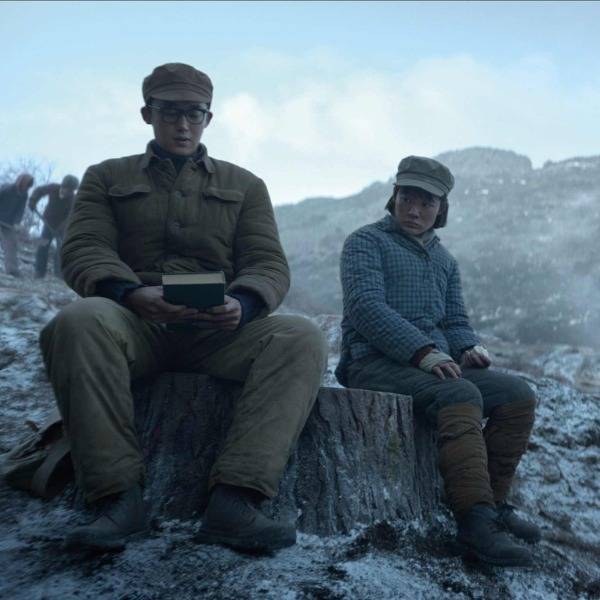Ray Bradbury, John Grisham, PD James and even Jeffrey Archer would have loved to tackle the idea at the centre of this sprawling novel. And even Jeffrey Archer might have done it more credit, ultimately, than the earnest newcomer Michael Byers. He has come up with the potential for a cracking good potboiler; but it's a theme in search of a genre. The author is so fixated on producing a multilayered exploration of big ideas that he neglects the one device his whole enterprise is crying out for: a plot. Dr Henry Moss is a geneticist specialising in the study of Hickman syndrome, a rare disorder that causes rapid ageing and premature death in children. It closely resembles a real condition, HutchinsonGilford progeria, but the differences are intended to give the author more dramatic freedom, albeit one that he singularly fails to exploit.
While Moss is working with a favourite young patient, William Durbin, who is deteriorating fast, he encounters a teenage boy who also carries the fatal Hickman gene combination but displays no symptoms. In fact, Thomas is radiantly healthy and almost ethereally beautiful. Tests indicate a secondary mutation that seems not only to make him immune to the disorder, but actually to reverse it and to defy age.
Moss faces a classic dilemma. Should he inject William with the mutation from Thomas's cells? It may be the only chance to save his life but would be an enormous risk both to the patient and to Moss's own position. To administer an untested and unauthorised treatment would contravene all international regulations. But the required procedures would take years far too long to be of use to William.
At the same time, Moss is aware that he may well be sitting on a major discovery: the key to eternal life, or at least a massively prolonged life. So his usual routine experiments with laboratory rodents take on a new force as, with the collusion of just one very close colleague, he begins to work secretly on his elixir both as a cure for his own patient and as a product to patent for a future fortune.
By now you will have probably detected the main dramatic drivers of the story. Moss decides to risk his own career to save the life of the child, so becomes vulnerable to those seeking to discredit him. And these include some of his closest associates because, as suspicion grows about the exact nature of his latest experiments, he faces the threat of a takeover by a much bigger scientific concern.
Were this a classic thriller, Moss would soon start to be hounded and there would be sinister attempts on his life. In a legal drama the rush to patent his findings would collide with the imperative to hide his lawbreaking. And in a business blockbuster the threats of takeover would be the main theme, coloured by layers of betrayal and paranoia. In all three, the medical urgency would dominate: the suspense of waiting to see the effect of the treatment, the race against time to save the child.
Amazingly, all of this is set up and none of it is developed. No one shops Moss, nor even blackmails him. The big bad company offers quite a good deal in the end, brokered by implausibly competent and honest lawyers. Any hint of tension fizzles out before it begins.
Another genre opportunity that is raised and discarded is that of science fiction. William, who like all Hickman sufferers looks like an alien, begins to believe that he is one. He speculates about the limits of time travel. Perhaps the aliens are the ones in the know and one day everyone will look like him. This theme becomes quite promising when Moss, realising that he needs to test his enzyme on humans to increase its market potential, is tempted to inject himself with it. And finally does. But nothing happens and that possibility also evaporates.
Instead of going for action and suspense, Byers builds a series of subplots relating to Moss and his family, probably intended to offer perspectives on life and death, mortality and transience. But even these go nowhere. Moss's daughter has a flirtation with Thomas but gets over it. She is impatient with his stupidity, which may be connected with his condition. But we never find out. His son has an unsatisfactory romance with a girl at school but I truly could not figure out why this mattered.
There is also a huge subtheme involving Moss's ungainly but loyal wife, but this again consists of detail without import. Possibly we are just being offered an ordinary family going through the normal cycle of growing up and growing old, in contrast with Moss's freakish patients and the scary possibilities of immortality. Possibly.
The story is set in Seattle, a city transformed by the Microsoft revolution and the dotcom boom. Everyone is obsessed with property and riches, and the implication is that all of it is a bubble about to burst, an illusion of wealth with no real substance. While Moss and his wife are not greedy, they can't help but be tempted by the lure of a fortune when everyone round them is moving out, moving up, renovating and spending. By the end of the novel I was really hoping that the whole thing would collapse and all the secrecy and deals would have been in vain. But even that didn't happen.
Long for this World is available from Amazon (UK)

